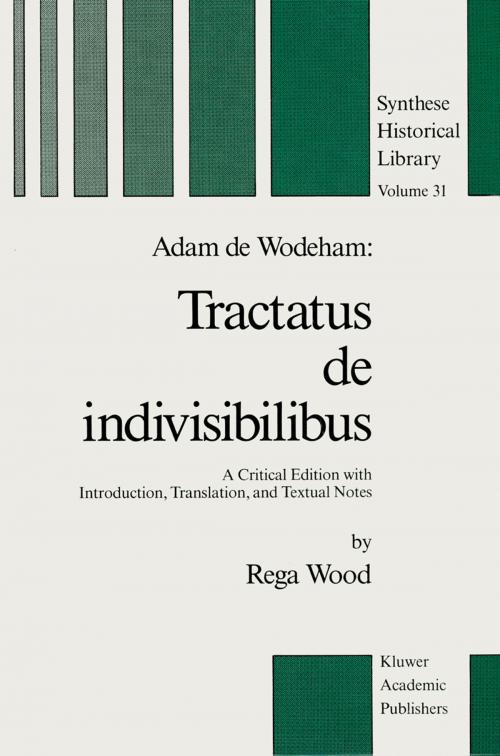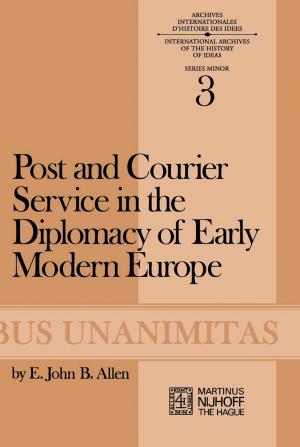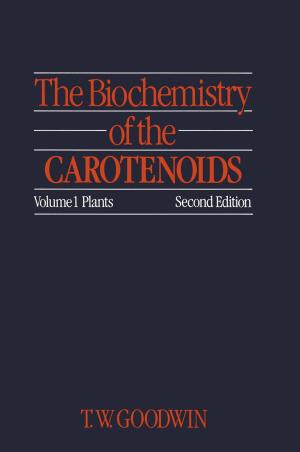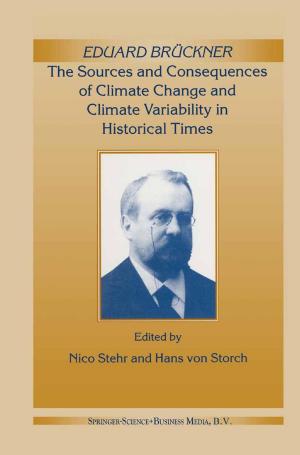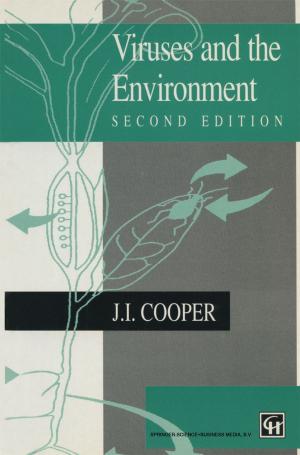Adam de Wodeham: Tractatus de Indivisibilibus
A Critical Edition with Introduction, Translation, and Textual Notes
Nonfiction, Religion & Spirituality, Philosophy, Metaphysics| Author: | ISBN: | 9789400914254 | |
| Publisher: | Springer Netherlands | Publication: | December 6, 2012 |
| Imprint: | Springer | Language: | English |
| Author: | |
| ISBN: | 9789400914254 |
| Publisher: | Springer Netherlands |
| Publication: | December 6, 2012 |
| Imprint: | Springer |
| Language: | English |
The English Franciscan philosopher and theologian, Adam of Wodeham (d. 1358), was a disciple and friend of William of Ockham; he was also a student of Walther Chatton. Nevertheless, he was an independent thinker who did not hesitate to criticize his former teachers - Ockham sporadically and benevolently, Chatton, frequently and aggressively. Since W odeham developed his own doctrinal position by a thorough critical examination of current opinions, the first part of this introduc tion briefly outlines the positions of the chief figures in the English controversy over indivisibles. The second part of the introduction pre sents a summary of Wodeham's views in the Tractatus de indivisibilibus, lists the contents of the treatise, and considers the question of its date and its chronological position in the context of Wodeham's other works. In the third part, the editorial procedures used here are set forth. 1. THE INDIVISIBILIST CONTROVERSY In the literature of the 13th and 14th centuries, the term 'indivisible' refers to a simple, un extended entity. Consequently, these indivisibles are not physical atoms but either mathematical points, temporal instants or indivisibles of motion, usually called mutata esse. I THOMAS BRADWARDINE (d. 1349), roughly contemporary with Wodeham, classified the positions it was possible to take regarding indivisibles. He described his own view as the common view, that of "Aristotle, A verroes, and most of the moderns," according to which a "continuum was not composed of atoms (athomis) but of parts divisible without end.
The English Franciscan philosopher and theologian, Adam of Wodeham (d. 1358), was a disciple and friend of William of Ockham; he was also a student of Walther Chatton. Nevertheless, he was an independent thinker who did not hesitate to criticize his former teachers - Ockham sporadically and benevolently, Chatton, frequently and aggressively. Since W odeham developed his own doctrinal position by a thorough critical examination of current opinions, the first part of this introduc tion briefly outlines the positions of the chief figures in the English controversy over indivisibles. The second part of the introduction pre sents a summary of Wodeham's views in the Tractatus de indivisibilibus, lists the contents of the treatise, and considers the question of its date and its chronological position in the context of Wodeham's other works. In the third part, the editorial procedures used here are set forth. 1. THE INDIVISIBILIST CONTROVERSY In the literature of the 13th and 14th centuries, the term 'indivisible' refers to a simple, un extended entity. Consequently, these indivisibles are not physical atoms but either mathematical points, temporal instants or indivisibles of motion, usually called mutata esse. I THOMAS BRADWARDINE (d. 1349), roughly contemporary with Wodeham, classified the positions it was possible to take regarding indivisibles. He described his own view as the common view, that of "Aristotle, A verroes, and most of the moderns," according to which a "continuum was not composed of atoms (athomis) but of parts divisible without end.
